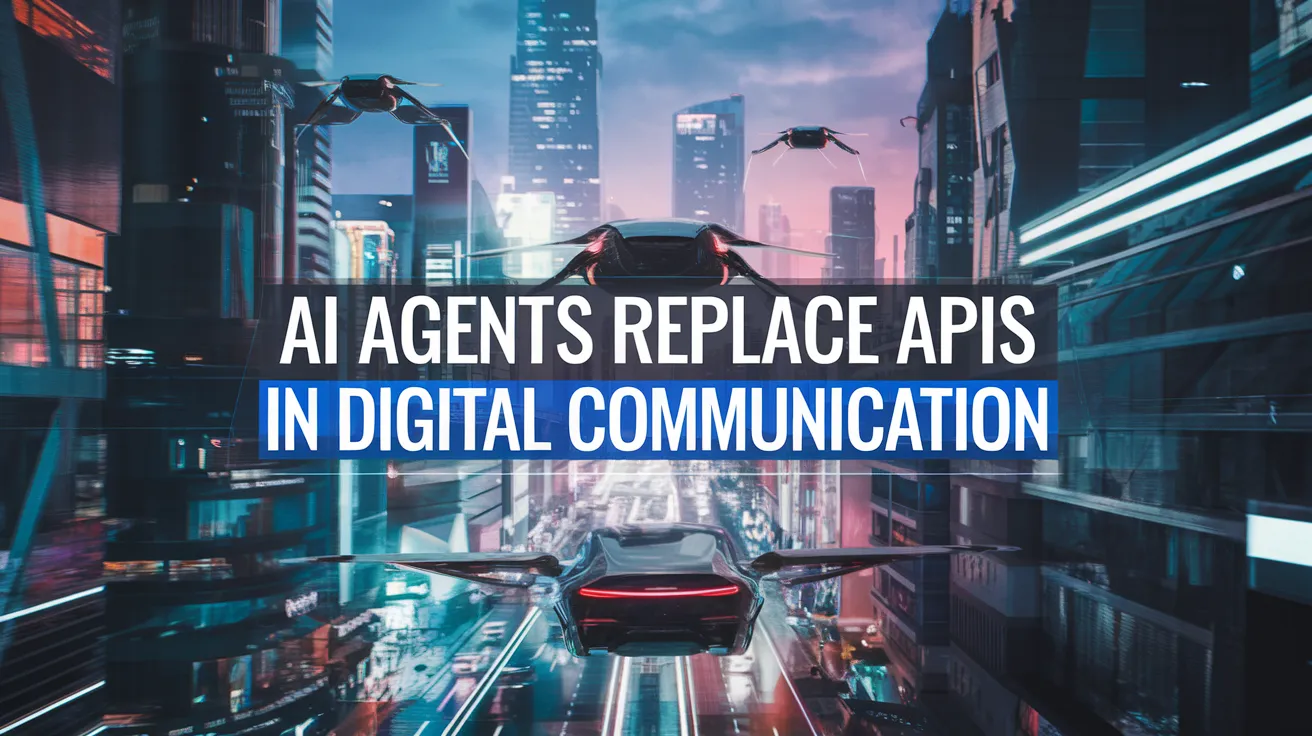AI Agents Replace APIs in Digital Communication

For decades, the humble API has served as the backbone of digital communication, connecting various services seamlessly. It facilitated the interaction between disparate systems, akin to how Lego pieces seamlessly fit together. From linking your WhatsApp account to Gmail to enabling communication among diverse applications, APIs have played a crucial role in the digital landscape.
However, the emergence of autonomous AI agents is set to disrupt this established order. These new programs are not just passive responders; they can decide, reason, and negotiate on our behalf, marking a significant shift in how systems communicate. Coty Rosenblath, CTO of Katalon, observes that traditional APIs, which rely on rigid contracts between services, need to evolve to accommodate the dynamic nature of AI agents.
Sandeep Alur, CTO at Microsoft’s India innovation hub, echoes this sentiment, suggesting that as AI agents become foundational elements of software, engineering will need to pivot from API design to orchestrating intelligent agents. He cites emerging standards like Model Context Protocol (MCP) and Agent-to-Agent (A2A) communication that redefine inter-system interactions.
The MCP offers a standardized framework for AI models to interact with various tools, providing real-time data access across services, while A2A focuses on enabling structured collaboration between agents. This dual functionality represents a shift towards more sophisticated communication strategies where agents can collectively pursue goals and coordinate actions.
Rosenblath succinctly notes that while prompt engineering saw its rise during the chatbot craze, the future will hinge on the ability to orchestrate multiple AI agents effectively. This raises the demand for new skill sets in the engineering field. Santosh Singh from Tata Technologies poetically frames this evolution: prompt engineering was merely the spark, while agent orchestration represents the symphony.
From a talent development perspective, Vishal Chahal from IBM emphasizes that future engineers must be adept at creating secure, multi-protocol integrations. This transition implies a shift from crafting simple prompts to enhancing specialized models and incorporating them into broader enterprise systems.
Rosenblath stresses that the ability to decompose complex objectives into manageable tasks for AI agents will increasingly dictate success. Techniques that prioritize validation and feedback loops are expected to gain prominence in standard engineering practices.
Moreover, Chahal outlines essential competencies for tomorrow’s engineers, emphasizing the importance of task automation, machine learning fundamentals, prompt crafting, and integration expertise. With this, he notes the necessity for an intuitive understanding of agent behavior in varied scenarios.
Pavan Gurazada, from Northwestern University, categorizes future talent into two groups: tool builders, who leverage standardized protocols like MCP, and agent builders, who compose and orchestrate these tools into collaborative agents. Engineers, he argues, must adeptly map business processes into agent-driven workflows aligning with corporate objectives.
Sameer Goyal from Acuity Knowledge Partners underscores the importance of systems thinking in the development of AI agents. He posits that the orchestration of agents is an intricate interplay of distributed computing, cognitive science, and systems design.
As the demand for these evolving skills escalates, industry leaders like S Anand, founder and CEO of PaySprint, reflect an active pursuit for talent that can navigate the complexities of AI and business strategy.